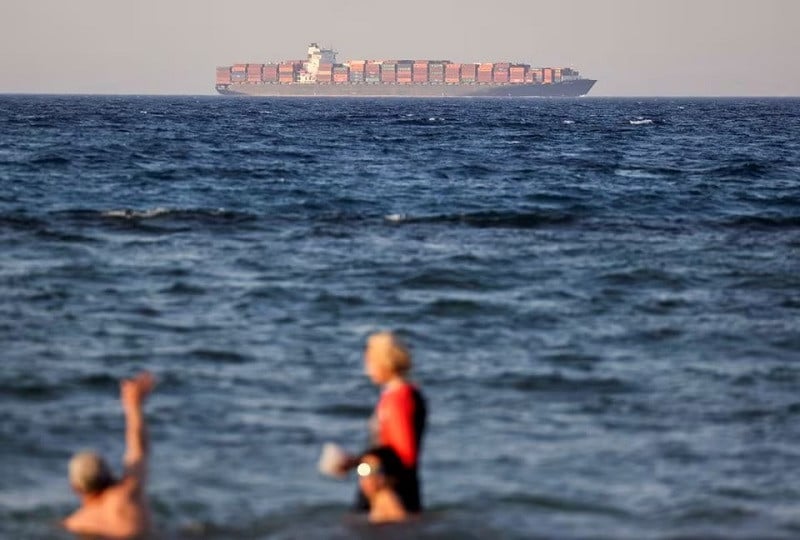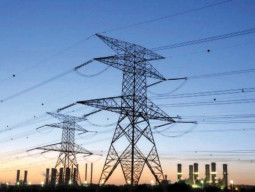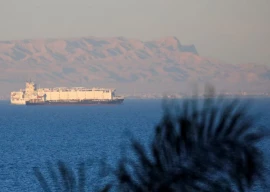
The Red Sea trade crisis has led to a 150% surge in freight charges in Pakistan, posing a significant threat to the export of major commodities, including textiles, rice, and fruits and vegetables.
Speaking to a group of journalists on Tuesday, All Pakistan Shipping Association (APSA), Chairman, Aasim A Siddiqui revealed that freight charges have, on average, risen from $1,500 per container to $2,500 per container in the aftermath of the maritime trade crisis on the East-West route.
Before the crisis erupted due to the Houthis in Yemen attacking cargo vessels against Israeli aggression on the Palestinian people in Gaza, freight charges stood at around $1,000 per container.
The extended travel routes via Africa to reach Europe and America, undertaken by vessels to avoid the crisis, have increased delivery times, led to a shortage of empty containers, and caused demurrages in numerous countries, including Pakistan.
“The surge in freight charges is directly attributed to the tension in the Red Sea. There is no other excuse,” he stated, refuting allegations made by local businessmen and trade bodies that shipping companies were responsible for the substantial hike in freight charges in the country. Siddiqui explained that a vessel now takes a total of three weeks to reach its destination via Africa, compared to just one week through the Red Sea. The prolonged travel time has resulted in a shortage of containers, contributing to the rise in freight charges.
It has been reported that freight charges have surpassed the export price of rice in the wake of the crisis, jeopardising Pakistan’s second-largest export. Similarly, the export of the single largest sector, textiles, and vegetables and fruits, including mandarin (kinnow), is at risk.
Read Yemen's Houthi rebels escalate Red Sea attacks, hit Trafigura fuel tanker
He explained that all stakeholders, including seaports, terminal handlers, and shipping companies, were charging demurrage (additional rent) on containers due to delays in the clearance of containerised cargo from ports. He noted, however, that each company charges a different rate of demurrage on the delay in clearance of containers from the port. The rates cannot be uniform, and the differences create healthy competition among the companies. If any company charges a higher rate, importers and exporters have the choice to switch to other companies, as no single company can collect unjustified (higher) charges for an extended period. Ultimately, any company charging unjustified fees would lose clients sooner or later, he said.
Approximately 18 to 20 foreign shipping companies are operating in Pakistan, transporting trade cargo for local importers and exporters worth over $70 billion annually.
The APSA chairman further stressed that shipping companies are making all possible efforts to increase maritime trade, but reforms in the maritime trade policy are essential.
He advocated for addressing issues in Afghan transit trade instead of suspending the entire trade to Kabul via Pakistan to control smuggling of goods from the landlocked state. While acknowledging potential involvement of some traders in smuggling, he suggested a crackdown against the elements engaged in illegal activities instead of a complete closure of transit trade. He clarified that the policy of Afghan transit trade is determined by the state, and the government decides on the closure or opening of Pak-Afghan borders. Shipping companies associated with Afghan trade operate in compliance with the law. “We will work according to the policy of the federal government in this regard.”
Despite amendments in the maritime trade policy after 20 years, Siddiqui highlighted that the APSA was not consulted.
He appealed to the government to release the 10,000 containers stuck at the port due to issues pending since the Covid-19 pandemic. Additionally, another 1,000 containers in suspended Afghan transit trade are causing financial losses.
Published in The Express Tribune, January 31st, 2024.
Like Business on Facebook, follow @TribuneBiz on Twitter to stay informed and join in the conversation.



1737582559-0/Elon-Musk--(2)1737582559-0-165x106.webp)
1737579953-0/Trump-(10)1737579953-0-165x106.webp)










1736070587-0/Express-Tribune-(2)1736070587-0-270x192.webp)
1737452260-0/Gaddafi-stadium-(2)1737452260-0-270x192.webp)
1737531830-0/Saim-Ayub-injury-(2)1737531830-0-270x192.webp)









COMMENTS
Comments are moderated and generally will be posted if they are on-topic and not abusive.
For more information, please see our Comments FAQ